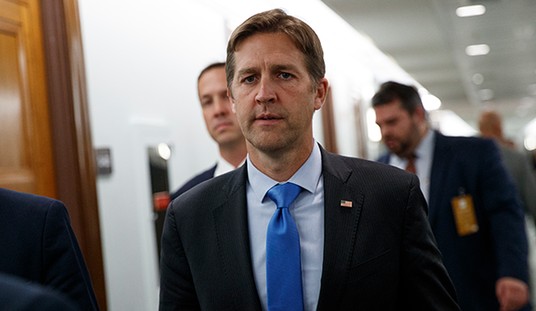WASHINGTON — Director of National Intelligence Dan Coats said he’s “not in a position to either understand fully or talk about what happened at Helsinki” between President Trump and Russian President Vladimir Putin as he warned about malign activities from the Kremlin intended to influence the November vote.
The White House briefing opened with Coats, FBI Director Christopher Wray, Secretary of Homeland Security Kirstjen Nielsen, National Security Agency Director Gen. Paul Nakasone and National Security Advisor Ambassador John Bolton commenting on current administration efforts to secure the midterm elections.
Senate Democrats criticized Republicans over election security this week after GOPs blocked an amendment offered by Senate Appropriations Committee Vice Chairman Patrick Leahy (D-Vt.) to provide $250 million in election security grants to states. The measure had 50-47 support but failed to clear the needed 60-vote threshold.
Five Senate Dems also sent a letter to Bolton expressing concerns about election security; he sent a letter in response assuring them that “extensive, historic actions” had already been taken “to ensure the integrity of our elections and to defend against foreign malign influence.”
“We do not wish to make the efforts of our adversaries any easier through injudicious public disclosures. Nonetheless, we have offered to do before and continue to offer briefings to members of Congress in secure facilities,” Bolton told reporters today.
Sens. Chuck Schumer (D-N.Y.), Dick Durbin (D-Ill.), Dianne Feinstein (D-Calif.), Amy Klobuchar (D-Minn.), and Chris Van Hollen (D-Md.) said in a statement later that Bolton’s response didn’t address their letter’s concerns that the Trump administration “fully implement the sanctions on Russia that Congress already passed, extradite the 12 Russian government officials indicted by Special Counsel Mueller, and commit to protecting diplomats and other U.S. personnel – both past and present.”
Coats told reporters that the intelligence community “continues to be concerned about the threats of upcoming U.S. elections, both the midterms and the presidential elections of 2020.”
“In regards to Russian involvement in the midterm elections, we continue to see a pervasive messaging campaign by Russia to try to weaken and divide the United States. These efforts are not exclusive to this election or future elections, but certainly cover issues relevant to the election,” he said. “We also know the Russians try to hack into and steal information from candidates and government officials alike.”
Nielsen said that “our adversaries have shown they have the willingness and capability to interfere in our elections,” and “DHS has and continues to work closely with state and local election officials throughout the country by offering a range of services to help identify weaknesses in their election systems.”
“Whether it’s offering no-cost, voluntary technical assistance or sharing best practices for securing online voter registration databases, or providing technical advice on ransomware and destructive malware, our department stands ready to provide tailored support based on each jurisdiction’s unique needs,” she said.
Wray said the FBI’s foreign influence task force ensures “a multidisciplinary response; that’s because the threat is multidisciplinary.”
“Just a few examples of some of the things we’ve seen over the past, targeting U.S. officials and other U.S. persons through traditional intelligence tradecraft, criminal efforts to suppress voting and provide illegal campaign financing, cyber attacks against voting infrastructure along with computer intrusions targeting elected officials and others. And a whole slew of other kinds of influence by both overtly and covertly manipulating news stories, spreading disinformation, leveraging economic resources and escalating divisive issues,” the director said. “But it’s important to understand this is not just an election cycle threat. Our adversaries are trying to undermine our country on a persistent and regular basis, whether it’s election season or not.”
“Even as we speak we’ve got open investigations with a foreign influence nexus spanning field offices, FBI field offices across the country,” Wray added. “So make no mistake, the scope of this foreign influence threat is both broad and deep.”
The FBI last week distributed “a list to our state and local law enforcement partners of various foreign influence indicators for them to be on the lookout for, things like malicious cyber activity, social abnormalities and foreign propaganda activities.”
Nakasone wouldn’t discuss specifics of the NSA’s role, “except to state that our forces are well-trained, ready and very capable.”
“We will work in conjunction with other elements of our government to ensure we bring the full power of our nation to bear on any foreign power that attempts to interfere in our democratic processes,” he said.
Coats said the purpose of the national security leaders appearing today “is simply to tell the American people we acknowledge the threat, it is real, it is continuing, and we are doing everything we can to have a legitimate election that the American people can have trust in.”
“In addition to that, it goes beyond the elections, it goes to Russia’s intent to undermine our democratic values, drive a wedge between our allies and do a number of other nefarious things, and we are looking at that also,” the DNI added. “…Russia has used numerous ways in which they want to influence, through media, social media, through bots, through actors that they hire, through proxies — all of the above, and potentially more.”
Coats was asked if he supports additional Russia sanctions legislation. A bipartisan group in the Senate introduced a new sanctions package today.
“I would support any efforts that we can collectively put together to send the signal to Russia that there’s a cost — a price to pay for what they’re doing, and if we want to have any kind of relationship whatsoever in dealing with things of mutual interest, the Russians have to stop doing what they’re doing or it’s simply not going to happen,” Coats replied.
Asked if he has been authorized to launch counter-cyber-operations in response, Nakasone said the NSA’s “guidance and the direction from the present Secretary of Defense is very clear — we’re not going to accept meddling in the elections. And it’s very unambiguous.”









Join the conversation as a VIP Member